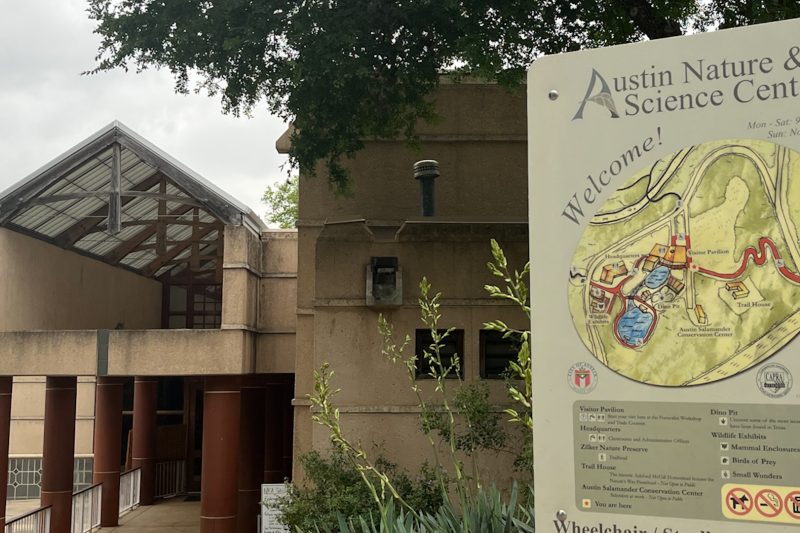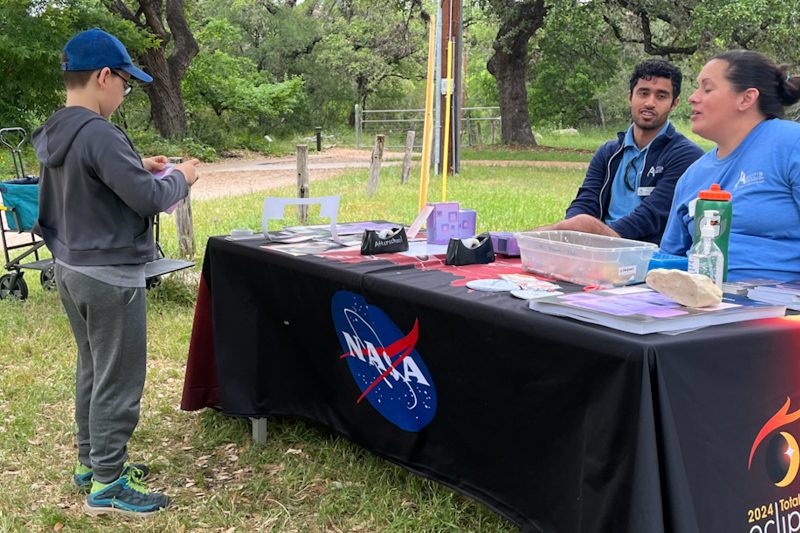NASA Experts Launch Preparations for Viewing the Total Solar Eclipse
By Tanya Velázquez
Reporting Texas TV
AUSTIN, Texas – In celebrating the moon crossing paths with the sun, NASA experts crossed paths with Central Texans at the Austin Nature and Science Center’s Total Eclipse at the Park on April 6-7.
“We have subject matter experts, we have some planetary scientists to give talks. And then we are explaining some of the active missions that NASA is doing,” said Sarah Marcotte, a NASA public engagement specialist.
Marcotte said she hoped to educate and prepare Austinites for the 2024 total solar eclipse, which passed through Mexico, the U.S. and Canada. Austin fell under the narrow path of totality, which meant viewers could see the moon completely block the face of the sun. For the first time since 1397, spectators had the chance to witness this once-in-a-lifetime event.

The Austin Nature and Science Center presented Total Eclipse of the Parks activities in Austin, Texas, on April 7, 2024. (Tanya Velázquez/Reporting Texas TV)
“Not everyone has access to travel across the world or across the nation to see an eclipse in the path of totality, so that’s what makes this one particularly special,” Jessica Gilzow said.
The total eclipse lasted between 19 seconds in the southeastern edge of Austin to three minutes in west Austin, according to city officials.
Gilzow, the City of Austin Culture and Arts Division’s education program manager, said eclipse glasses were just one way they helped central Texans prepare for the sunless sight.
Attendees also made pinhole cameras, checked out NASA’s six-wheeled rover, and even explored the stars.
“We’ve also got the Austin Nature and Science Center planetarium open so people can learn a little bit about the night sky and just learn about astronomy in general,” Gilzow said.
Inside the planetarium, Austin Nature and Science Center staff displayed constellations, a spatial view of the Earth and even a simulation of the total eclipse.

NASA hosts activities in Austin, Texas, on April 6, 2024. (Tanya Velázquez/Reporting Texas TV)
NASA also gave the latest scoop on its current missions.
Marcotte said these plans venture far beyond Earth.
“The Perseverance rover… and some of the future activities on Mars, which involves bringing rock samples from Mars to Earth for studying,” Marcotte said.
NASA’s discussions gave some people high hopes, including Austin resident Trevor Cadize.
“I hope humanity prevails and we’re able to make it to Mars,” he said.
Whether it’s learning about the sun, moon or mars, Gilzow said the eclipse is a reminder that the cosmos keep us connected.
“This is a great opportunity during the total eclipse to just take a moment, pause,” she said. “Just look up at the sky and realize that there’s an entire planet full of people who are united under the same sun.”